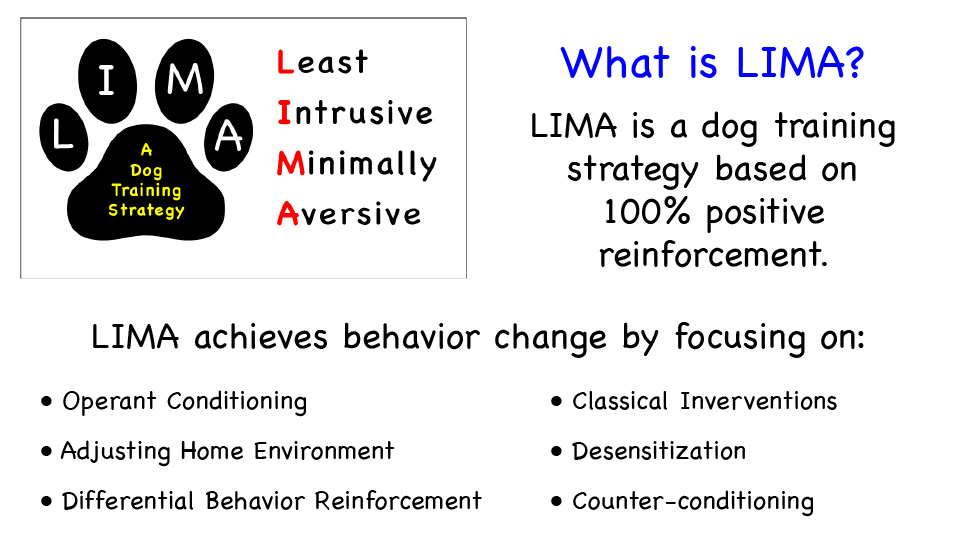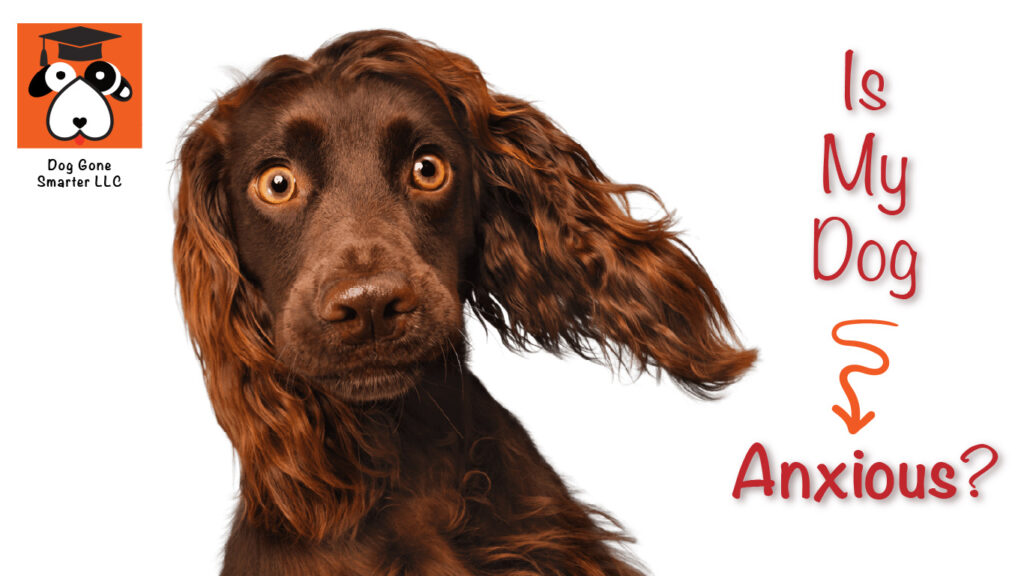Are you attuned to the signs of your dog’s anxiety?
Not sure what those signs are? Well, some are much like signs of anxiety YOU might feel in a stressful situation? You might feel jittery, pace back-and-forth, scratch the back of your hand or head, or perhaps you are quick to anger, tend to overreact and get a bit emotional?
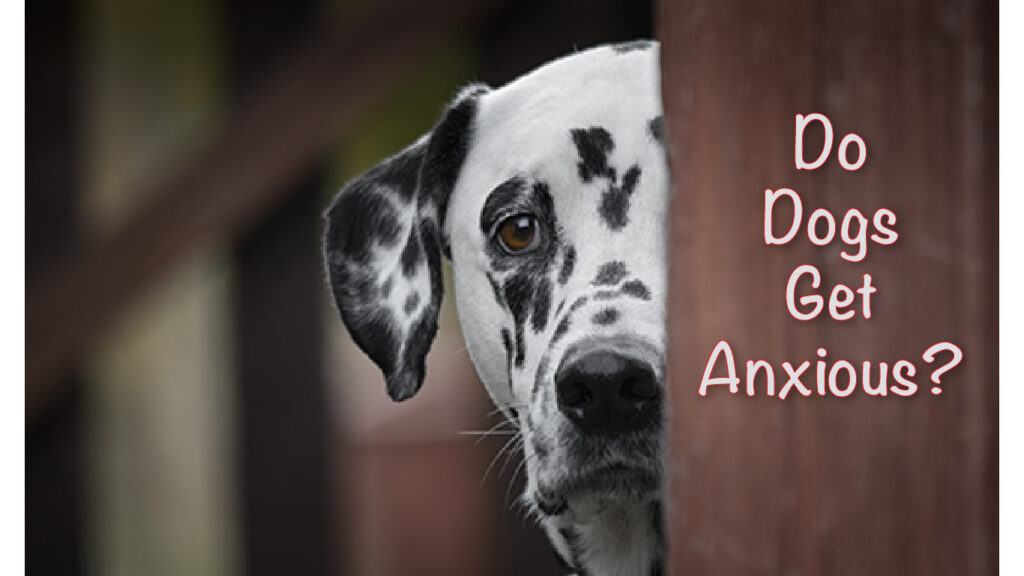
Feeling stressed is no fun for anyone and when your dog is stressed, often the whole family gets more stressed. For some pups, feeling a bit stressed is a passing fancy.
Maybe it just occurs during the holidays, when your brother comes over with to stay the night with his four kids, two dogs and very large kitty. No real cause for concern here, anyone might get a little nervous with such a big gathering.
But if your pup starts zooming around your home because the doorbell rang or starts to shake whenever your friends come over to visit – you could be facing a serious and diagnoseable form of anxiety. Anxiety that will likely need an expert trainer or animal behaviorist to put together a thoughtful, science-based treatment plan to get you and your dog feeling better.
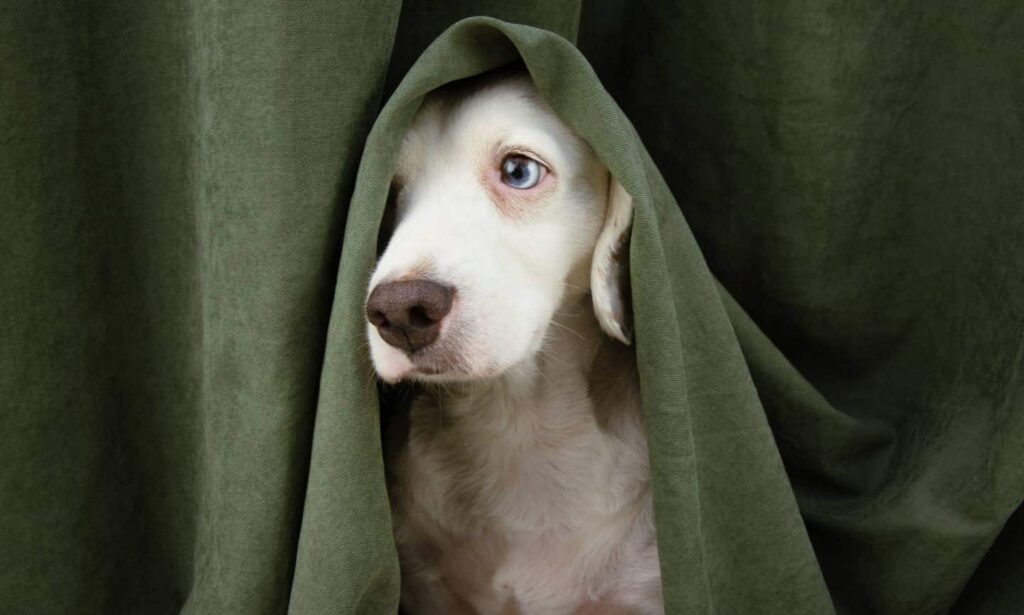

Situational versus Generalized Anxiety
With situational anxiety, your dog becomes anxious when faced with specific situations or contexts. For example, your pup may become stressed when left alone at home, or when dropped off at a boarding facility.
If your pup is experiencing generalized anxiety, then your pup becomes anxious in a variety of situations – not in one particular context.
When it’s time to consult with a professional
Once your dog’s anxiety becomes so severe that it hinders that quality of your pup’s life, then it’s certainly time to consult with a professional.
Fear versus Anxiety
Anxiety takes place as the result of an anticipation of a future event, while fear is a state of significant apprehension associated with a particular event or stimulus, whether it is real or imagined.
Certain breeds may even have a tendency towards a form of fear often referred to as profound fear, or idiopathic fear. I have personally seen this more pronounced form of fear in Bernese Mountain Dogs, Border Collie, Poodles, Huskies and Black Labradors.
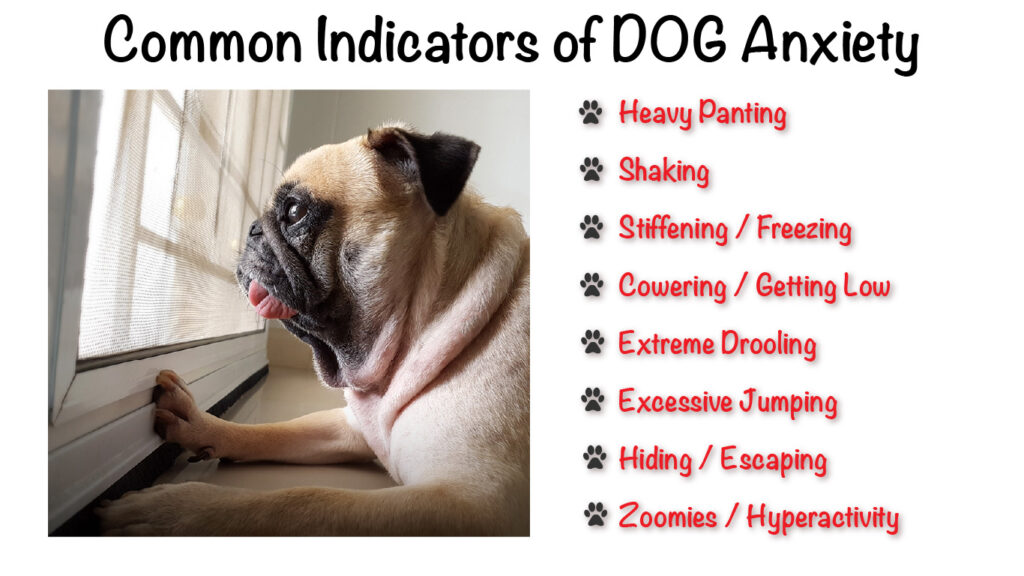
Anxiety Indicators
Listed to the left are some common indicators to help you spot the signs of anxiety in your pet.
Dogs with severe anxiety, will benefit from an owner who connects with a professional and who is willing to do whatever it takes to create a calm and predictable home environment.

